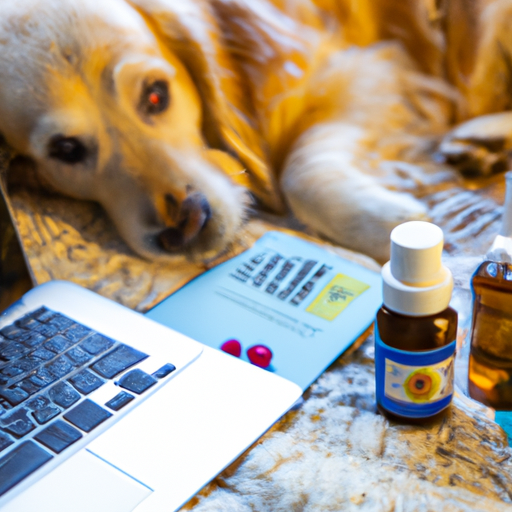A urinary tract infection, or UTI, is not only painful for your dog, but it can also lead to serious health issues if left untreated. While it’s always recommended to consult a vet when your pet is ill, there are a few things you can do at home to help manage and prevent UTIs in your furry friend.
1. Understanding Canine UTIs
Before you can effectively care for a dog with a UTI, you need to understand what it is and why it happens.
A UTI occurs when bacteria enters the urinary tract, leading to inflammation and discomfort. Dogs of any age, breed, or sex can develop a UTI. However, female dogs are more prone to UTIs due to their shorter urethra, which makes it easier for bacteria to reach the bladder.
Common symptoms of a canine UTI include:
- Frequent urination
- Difficulty urinating or visible discomfort while urinating
- Blood in the urine
- Increased thirst
- Fever
- Changes in behavior such as lethargy or irritability
2. Home Remedies for Canine UTIs
While a UTI must be diagnosed and treated by a vet, there are a few home remedies you can use to help alleviate your dog’s symptoms and prevent future UTIs.
2.1 Increase Water Intake
Encouraging your dog to drink more water can help flush out the bacteria causing the UTI.
- Fresh Water: Always ensure your dog has access to fresh, clean water.
- Wet Food: Switching to wet food can also increase your dog’s water intake.
- Flavored Broth: Adding a splash of low-sodium chicken or beef broth to your dog’s water can make it more appealing.
2.2 Dietary Changes
Certain foods can help prevent and manage UTIs in dogs.
- High-Quality Dog Food: Low-quality dog foods often contain ingredients that can aggravate UTIs. Choose a high-quality dog food with natural ingredients.
- Cranberries: Cranberries are known to prevent bacteria from sticking to the walls of the urinary tract. You can add cranberry supplements to your dog’s diet, but avoid cranberry sauce or juice as these often contain added sugars.
2.3 Herbal Remedies
Certain herbs are known for their antibacterial properties and can help fight UTIs. However, you should always consult with your vet before starting any herbal remedies as some herbs can interfere with medications or may not be safe for all dogs.
- Uva Ursi: Also known as bearberry, uva ursi is often used in herbal remedies for UTIs.
- Marshmallow Root: Marshmallow root can help soothe the urinary tract and reduce inflammation.
3. When to Consult a Vet
Even with home remedies, it’s crucial to consult a vet if your dog is showing signs of a UTI. A vet can properly diagnose a UTI and prescribe antibiotics if necessary.
Never attempt to treat a serious UTI solely with home remedies. If your dog is in pain, has blood in their urine, or is having difficulty urinating, seek veterinary care immediately.
4. Preventing Future Canine UTIs
Prevention is always better than cure. Here are some measures you can take to prevent UTIs in your dog:
- Regularly clean your dog’s water and food bowls to prevent bacterial growth.
- Groom your dog regularly, especially around the rear end, to prevent bacteria from entering the urinary tract.
- Ensure your dog gets regular exercise to help maintain a healthy weight. Overweight dogs are more prone to UTIs.
5. Frequently Asked Questions (FAQs)
5.1 Can a dog’s UTI clear up on its own?
While minor UTIs may clear up on their own, it’s always best to consult a vet if you suspect your dog has a UTI. Left untreated, UTIs can lead to more serious health issues.
5.2 Can I give my dog human antibiotics for a UTI?
Never give your dog human antibiotics or any medication without consulting a vet. Certain medications can be toxic to dogs and the dosage would likely be different.
5.3 How long does it take for a dog to recover from a UTI?
With proper treatment, most dogs will start to feel better within a few days. However, it’s important to complete the full course of antibiotics to ensure the infection is completely cleared.
Remember, your dog relies on you for their well-being. By understanding UTIs and how to manage them, you’re doing your part in ensuring your furry friend leads a happy, healthy life.



